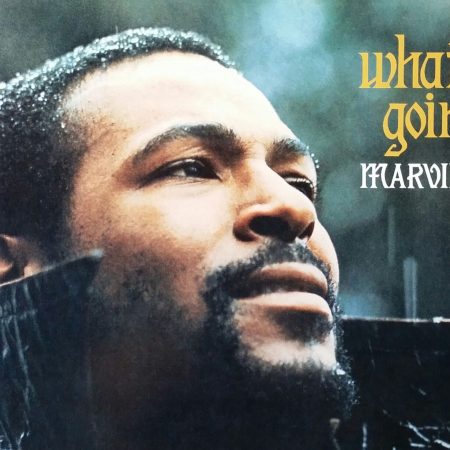It’s subjective, of course, as all music is, but if I had to really sit back and think about it, I’d say there are probably less than 100 artists over the course of pop culture as we know it who have never put out a mediocre record. The Rolling Stones had one of the most impressive four-album runs in rock history with Beggars Banquet, Let It Bleed, Sticky Fingers and Exile on Main St., but they still followed it up with the reviled dud Goats Head Soup. Lou Reed made some of the most essential music of the ’60s and ’70s, but he also made 2011’s disastrous Metallica collaboration Lulu.
The ones whose catalogs can actually be held up as flawless more often than not died young, burnt out before they had a chance to fade away; who knows what they would have done had they had the opportunity to grow old and irrelevant? Even the select few who can pass what critic Steven Hyden once dubbed “the Five-Albums Test” — which posits that anyone who manages to string together five consecutive great albums has rightfully earned a spot in the canon as a legendary artist — have likely put out something their fans have found to be a little more polarizing. Father John Misty, for example, one of the more contemporary artists to pass Hyden’s Five-Albums Test, hasn’t put out a bad record yet, but you’d be hard-pressed to find a fan of his who instantly took to 2022’s Chloe and the Next 20th Century the same way they fell for I Love You, Honeybear back in 2015.
But how hard, as a fan of any given artist, are you obligated to try to like their new music before you give up and admit it simply isn’t your cup of tea? A few weeks ago, while dragging my feet over listening to St. Vincent’s new album All Born Screaming, I stumbled across a tweet that perfectly encapsulated my feelings about her recent output. It’s since been deleted — perhaps because the original poster didn’t want to face the wrath of angry Annie Clark stans — but the gist of it was this: “2017: Hmm, the new St. Vincent album isn’t hitting as much for me as it is for everyone else. Guess I need to listen to it again. 2021: Hmm, the new St. Vincent album isn’t hitting as much for me as it is for everyone else. Guess I need to listen to it again. 2024: Hmm, the new St. Vincent album isn’t hitting as much for me as it is for everyone else. Guess I need to listen to it aga—”
How many consecutive albums that make us go “meh” must we tolerate before we can admit to ourselves that we simply don’t like an artist the way we used to? Actor, Strange Mercy and St. Vincent are all all-time greats for me, and I liked Masseduction enough to buy it on pink vinyl, but I couldn’t tell you the last time I actually gave it a spin. The over-the-top ’70s pastiche of Daddy’s Home left a bad taste in my mouth, and it’s time to admit it: I’m not, nor will I ever be, excited about a new St. Vincent record the same way I was a decade ago. But that’s okay!
Suddenly ’70s: The New Retro Influence Set to Dominate Popular Music
From St. Vincent to Bruno Mars to, yes, Greta Van Fleet, it’s currently inescapableWe live in weird times; stan culture is out of control, and obsessed fans will pore over Metacritic scores the same way a sports fan will check the standings every morning. They’ll harass anyone who dares to speak ill of their beloved artist, and they sure as hell will never admit that any of that artist’s output isn’t worth their time. Just search “we need the streams” on social media, and you’ll find hundreds of posts where these diehard fans encourage each other to listen to their least-favorite tracks on mute rather than skip over them in order to help ensure that their favorite billionaire pop star’s latest release reaches No. 1.
The general consensus from the Swifties in my life has been that The Tortured Poets Department is not Taylor Swift’s best work by any stretch of the imagination; at first listen, it’s overlong and overwrought, but just typing those words means I’m opening myself up to death threats and harassment. I’m all for a slow burn: there’s absolutely something to be said for putting in the work and giving a record like Tortured Poets a chance to grow on you after multiple listens. But if, after those listens, it’s still not doing it for you, there’s nothing wrong with throwing in the towel and moving on. These stans will never admit that their favorite artist is capable of putting out a dud; even if it’s not resonating with them the same way her previous work has, they’ll still buy every vinyl variant of it she puts out and stream it on mute while they’re sleeping to make sure one of the richest women in the world gets as many pennies from Spotify as possible.
Liking an artist shouldn’t be the same as sports fandom. Despite all the awards and chart statistics that seem determined to convince us otherwise, art isn’t something you can “win.” Unconditional support is admirable when you’re rooting for, say, the Chicago Cubs; no one wants to be a fair-weather fan, and as much as they frustrate me, I keep coming back. But if you blindly love everything a musician does, are you really even listening? There’s a telling scene in the new season of HBO’s Hacks where Deborah Vance, hot off of the success of her latest stand-up special, pops into a comedy club to try out some new material. The audience is so thrilled to see her, she can’t even get her punchlines out; they’re laughing at everything she says — even the set-ups that aren’t supposed to be funny. Frustrated, she tosses her notebook away and gives up. If they’re gonna laugh at literally every word you say, they might as well not be laughing at all.
There’s nothing wrong with recognizing that perhaps an artist’s strongest creative output is behind them. Just because we don’t dig the new stuff doesn’t mean we love the older material any less. (Just ask the scores of Boomers who will lose their minds over the Rolling Stones at their latest tour but utilize the obligatory Hackney Diamonds moment in the setlist as time to make their way to the bathroom.) And even if we do wind up loving something less than we did when it initially came out, tastes change! It’d be weird if, as a 35-year-old woman, I still loved Hanson the way I did as a kid in 1997, right?
If Taylor Swift’s right about one thing, maybe it’s that thinking of our favorite artists in terms of specific eras is key. We can pick and choose which eras speak to us the most and leave behind the ones that don’t. The music we love will always be there, frozen in amber; no matter how an artist evolves (or devolves) over the course of subsequent releases, we always have the option to simply tune it out and give our favorite record another spin instead. And at the end of the day, isn’t that what being a fan is really about?
This article appeared in an InsideHook newsletter. Sign up for free to get more on travel, wellness, style, drinking, and culture.

























